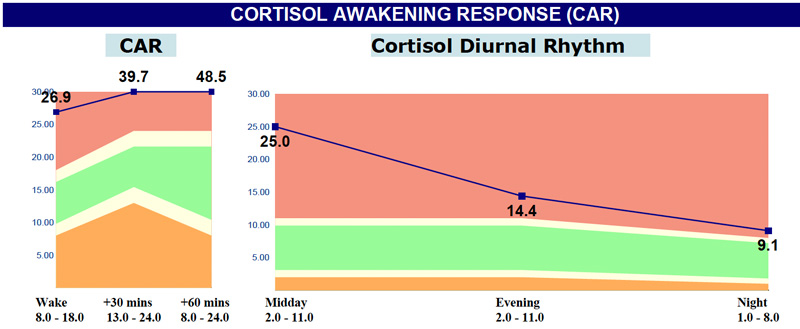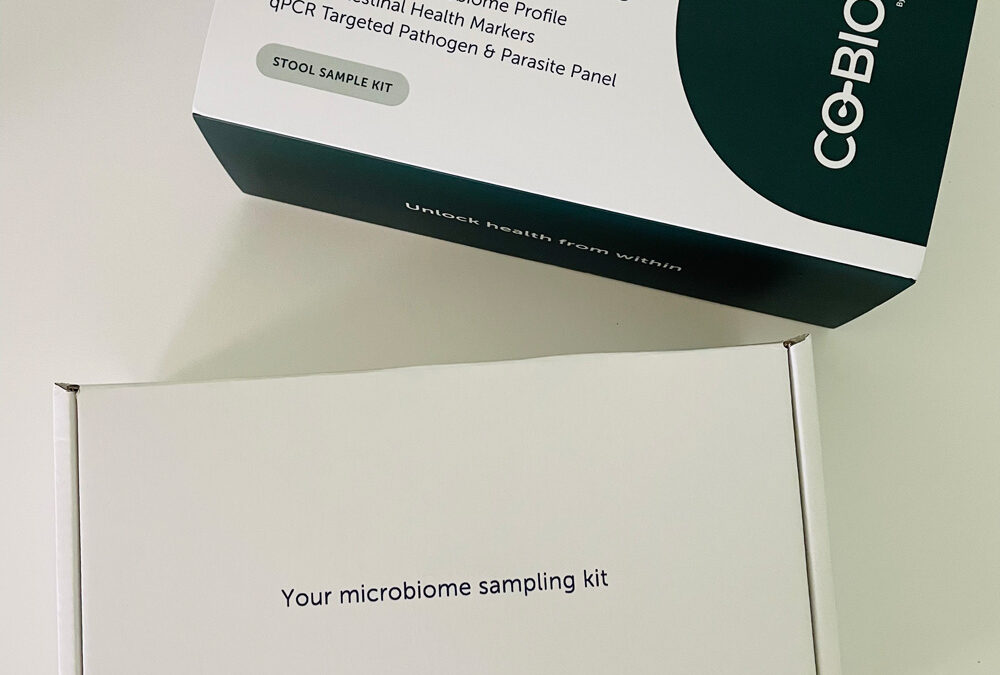Cortisol, often referred to as the ‘stress hormone,’ plays a significant role in how our bodies respond to stress. While it’s essential for survival, chronic stress and elevated cortisol levels can lead to weight gain, particularly around the midsection.
In today’s blog post, we’re going to explore how cortisol influences appetite, fat storage, and how you can accurately measure cortisol to pin point if it’s a hormone that you need to pay attention to for long term weight management.
What is Cortisol?
Cortisol is a hormone produced by the adrenal glands in response to stress. It helps regulate metabolism, blood sugar levels, blood pressure, and memory recall to name a few.
When cortisol levels remain high for extended periods, it can negatively impact not just your weight but your overall health from inflammation regulation to autoimmune development or progression.
High Cortisol Increases Appetite and Cravings
When cortisol levels rise, they stimulate appetite, especially cravings for high-calorie, sugary, or fatty foods. This response is a survival mechanism, preparing your body to face the perceived threat by ensuring you have enough energy to either fight or run away.
Unfortunately, in modern life, where stress is often psychological rather than physical, this increased appetite leads to unnecessary calorie consumption, and paired with a sedentary lifestyle it contributes to weight gain.
Leptin Resistance: The Hormonal Disruption
Leptin, known as the ‘satiety hormone,’ plays a crucial role in regulating appetite and energy balance. Your fat cells sends signals to the brain when you’ve had enough food.
However, chronic stress and elevated cortisol levels can lead to leptin resistance, where the brain becomes less responsive to leptin’s signals. As a result, you feel hungrier and are more likely to overeat, even when your body doesn’t need the extra calories.
Continued Fat Storage: The Cortisol-Leptin Combo
The combination of cortisol-driven appetite and leptin resistance creates a perfect storm for fat storage, particularly in the abdominal area. This happens because your body tends to store excess energy as fat when it’s constantly in ‘survival mode.’ Over time, this leads to an increase in belly fat and metabolic imbalances, making it even harder to manage weight.
How to Test Your Cortisol Levels
If you and your practitioner suspect cortisol is impacting your weight, we will recommend testing your cortisol levels to confirm this as a contributing factor.
The Cortisol Awakening Response (CAR) is one of the most reliable ways to measure your cortisol levels, as it captures the natural peak that occurs within 30-45 minutes after waking. This response provides a snapshot of how well your body handles stress upon waking and can be a key indicator of overall adrenal health.
It also captures another three cortisol points throughout the day showing not only the CAR but also any abnormal spikes or drops that might occur throughout the day. For example, elevated cortisol in the evening can contribute to difficulty sleeping and weight gain, while low levels in the morning might indicate HPA dysfunction and burnout.
By identifying these fluctuations, a tailored approach can be developed to restore balance, helping manage weight, reduce abdominal fat, and improve overall health.

Ready to Support Weight Loss and Metabolism
Ready to take control of your health and understand the role cortisol plays in your weight journey?
Book an Initial Consultation, or consider joining our Integrative Weight Loss Program to jump start your journey toward balanced cortisol levels and a healthier metabolism.












